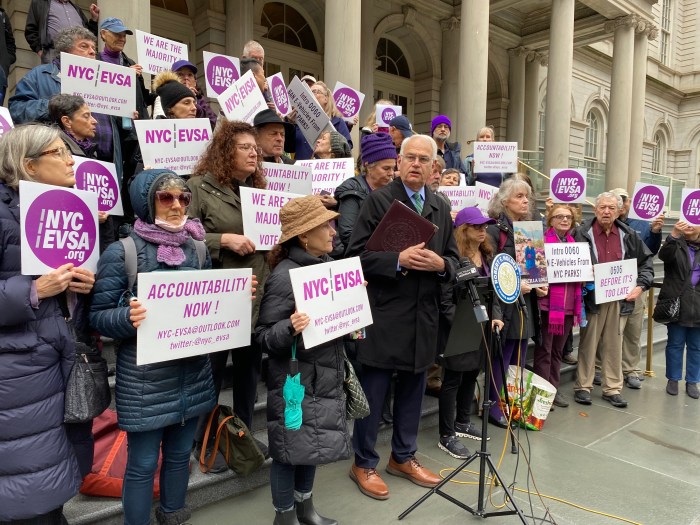A pilot program aimed at reducing the number of people stuck at Rikers because they couldn’t make bail will expand citywide next month.
The Decarceration Project, run by the Legal Aid Society, will post a dedicated attorney, paralegal and social worker in each borough to investigate arrests in which someone couldn’t make the set bail, and help lower the amount. The program is aided by a cash infusion of $860,000 from the Mayor’s Office of Criminal Justice.
“No one should be in jail who doesn’t have to be,” said MOCJ director Elizabeth Glazer. “We live right now with a very flawed bail system … We want to do every single thing that we can to reduce the number of people who are in Rikers who don’t have to be in Rikers.”
The citywide program, which is expected to be up and running by mid-May, will build on last year’s 6-month Manhattan pilot program, which challenged bail for 60 clients — some more than once — and as a result 20 of them were freed, according to the group’s report.
“Early last year we began to understand that our clients more likely to be convicted if they were detained pretrial,” said Joshua Norkin, the project coordinator for the Decarceration Project at The Legal Aid Society, adding that the best way to help people is “if we could put as many resources we could put into the front-end of the process.”
According to the Legal Aid Society, the number of bail challenges increased from 37 in 2016 to 74 last year, including 58 involving attorneys from the pilot. The rate of release went from 35 percent in 2016 to 45 percent in 2017.
“We basically did not limit ourselves to … the traditional notions of who should be and who shouldn’t be in jail,” Norkin said. “I think we wanted to, at least from our perspective, push back against that idea.”
For the citywide rollout, five new attorneys and a supervising attorney will be hired to handle bail cases in all five boroughs, including bail reviews, bail applications, writs of habeas corpus and appeals.
The program will also focus on services like connecting clients with family, matching them with supportive programming and referring their cases to bail funds and charities that will post bail for those with misdemeanor charges whose bail is set at $2,000 or less.



































